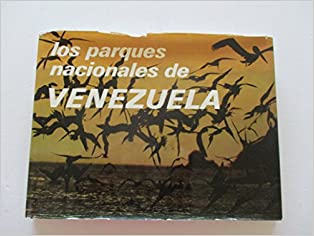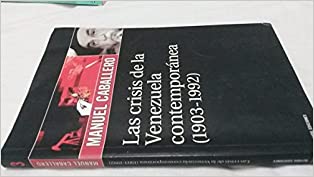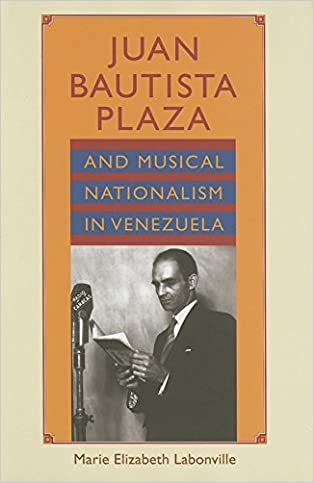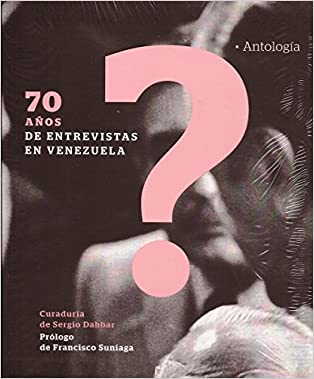Ir al contenido
Resultados de la búsqueda para: Venezuela


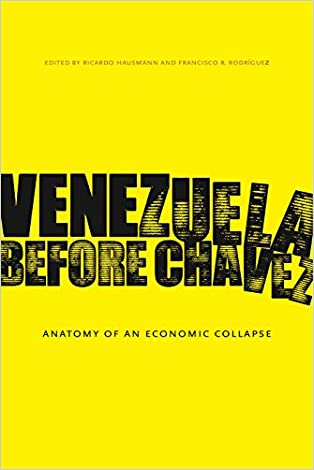 At the beginning of the twentieth century Venezuela had one of the poorest economies in Latin America, but by 1970 it had become the richest country in the region and one of the twenty richest countries in the world, ahead of countries such as Greece, Israel, and Spain. Between 1978 and 2001, however, Venezuela's economy went sharply in reverse, with non-oil GDP declining by almost 19 percent and oil GDP by an astonishing 65 percent. What accounts for this drastic turnabout? The editors of Venezuela Before Chávez, who each played a policymaking role in the country's economy during the past two decades, have brought together a group of economists and political scientists to systematically examine the impact of a wide range of factors affecting the economy's collapse, from the cost of labor regulation and the development of financial markets to the weakening of democratic governance and the politics of decisions about industrial policy. Aside from the editors, the contributors are Omar Bello, Adriana Bermúdez, Matías Braun, Javier Corrales, Jonathan Di John, Rafael Di Tella, Javier Donna, Samuel Freije, Dan Levy, Robert MacCulloch, Osmel Manzano, Francisco Monaldi, María Antonia Moreno, Daniel Ortega, Michael Penfold, José Pineda, Lant Pritchett, Cameron A. Shelton, and Dean Yang.
At the beginning of the twentieth century Venezuela had one of the poorest economies in Latin America, but by 1970 it had become the richest country in the region and one of the twenty richest countries in the world, ahead of countries such as Greece, Israel, and Spain. Between 1978 and 2001, however, Venezuela's economy went sharply in reverse, with non-oil GDP declining by almost 19 percent and oil GDP by an astonishing 65 percent. What accounts for this drastic turnabout? The editors of Venezuela Before Chávez, who each played a policymaking role in the country's economy during the past two decades, have brought together a group of economists and political scientists to systematically examine the impact of a wide range of factors affecting the economy's collapse, from the cost of labor regulation and the development of financial markets to the weakening of democratic governance and the politics of decisions about industrial policy. Aside from the editors, the contributors are Omar Bello, Adriana Bermúdez, Matías Braun, Javier Corrales, Jonathan Di John, Rafael Di Tella, Javier Donna, Samuel Freije, Dan Levy, Robert MacCulloch, Osmel Manzano, Francisco Monaldi, María Antonia Moreno, Daniel Ortega, Michael Penfold, José Pineda, Lant Pritchett, Cameron A. Shelton, and Dean Yang.
 This scarce antiquarian book is a facsimile reprint of the original. Due to its age, it may contain imperfections such as marks, notations, marginalia and flawed pages. Because we believe this work is culturally important, we have made it available as part of our commitment for protecting, preserving, and promoting the world's literature in affordable, high quality, modern editions that are true to the original work.
This scarce antiquarian book is a facsimile reprint of the original. Due to its age, it may contain imperfections such as marks, notations, marginalia and flawed pages. Because we believe this work is culturally important, we have made it available as part of our commitment for protecting, preserving, and promoting the world's literature in affordable, high quality, modern editions that are true to the original work.
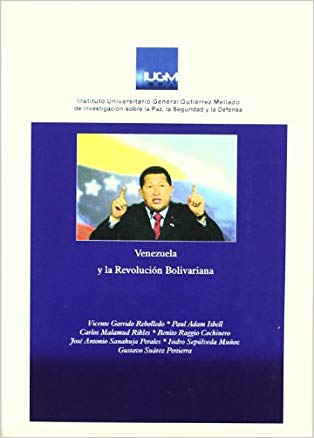



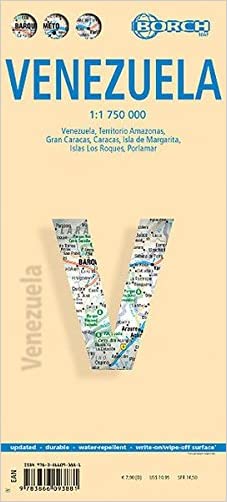

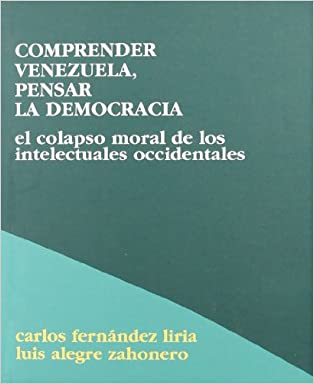 Carlos Fernández Liria (profesor titular de filosofía en la Universidad Complutense de Madrid) y Luis Alegre Zahonero (investigador en formación en esa misma universidad) emprenden en este libro una tarea cuya enorme importancia, a nuestro entender, contrasta de un modo muy desconcertante con la escasa atención que le han prestado la gran mayoría de los intelectuales españoles presuntamente más comprometidos con el proyecto político ilustrado de un Estado de Derecho. Lo que ha ocurrido y está ocurriendo en Venezuela tiene una inmensa importancia por razones muy distintas. Una de ellas, y no la menor, es la de haber dejado en evidencia a la gran mayoría de los intelectuales del mundo, de los que habría sido lógico esperar que lo entendieran y lo explicaran. Pocas veces se ha demostrado una nulidad tan tozuda o una mala fe tan insistente en tantos filósofos, académicos, periodistas, columnistas o comentaristas. No se entiende lo que se está demostrando en Venezuela y, cuando se entiende, no se entiende suficientemente. Y no es extraño. Porque los acontecimientos de la revolución bolivariana tienen algo de insólito, algo que a muchos intelectuales bienintencionados de izquierda les ha venido demasiado grande y que al resto, a los intelectuales orgánicos de todo el planeta, neoliberales o progresistas, les resulta hartamente peligroso. Tan peligroso, en efecto, que en Venezuela se están desenmascarando las mentiras más incuestionadas y más exitosas de todo el siglo XX, la gran mentira con la que, en el fondo, todos ellos se ganan la vida. ?¡De pronto, alguna vez, hay un resplandor en el panorama oscuro y mediocre de la cultura española! Este libro de Carlos Fernández Liria y Luis Alegre es por lo menos eso: un resplandor, pero tan intenso que corre el feliz riesgo de orientar un capítulo muy importante en la construcción de ?un socialismo para el siglo XXI?, tal como se llama, con alegría creadora, en Venezuela el proceso revolucionario que está en el origen, y es la inspiración, de este insólito libro?. Alfonso Sastre
Carlos Fernández Liria (profesor titular de filosofía en la Universidad Complutense de Madrid) y Luis Alegre Zahonero (investigador en formación en esa misma universidad) emprenden en este libro una tarea cuya enorme importancia, a nuestro entender, contrasta de un modo muy desconcertante con la escasa atención que le han prestado la gran mayoría de los intelectuales españoles presuntamente más comprometidos con el proyecto político ilustrado de un Estado de Derecho. Lo que ha ocurrido y está ocurriendo en Venezuela tiene una inmensa importancia por razones muy distintas. Una de ellas, y no la menor, es la de haber dejado en evidencia a la gran mayoría de los intelectuales del mundo, de los que habría sido lógico esperar que lo entendieran y lo explicaran. Pocas veces se ha demostrado una nulidad tan tozuda o una mala fe tan insistente en tantos filósofos, académicos, periodistas, columnistas o comentaristas. No se entiende lo que se está demostrando en Venezuela y, cuando se entiende, no se entiende suficientemente. Y no es extraño. Porque los acontecimientos de la revolución bolivariana tienen algo de insólito, algo que a muchos intelectuales bienintencionados de izquierda les ha venido demasiado grande y que al resto, a los intelectuales orgánicos de todo el planeta, neoliberales o progresistas, les resulta hartamente peligroso. Tan peligroso, en efecto, que en Venezuela se están desenmascarando las mentiras más incuestionadas y más exitosas de todo el siglo XX, la gran mentira con la que, en el fondo, todos ellos se ganan la vida. ?¡De pronto, alguna vez, hay un resplandor en el panorama oscuro y mediocre de la cultura española! Este libro de Carlos Fernández Liria y Luis Alegre es por lo menos eso: un resplandor, pero tan intenso que corre el feliz riesgo de orientar un capítulo muy importante en la construcción de ?un socialismo para el siglo XXI?, tal como se llama, con alegría creadora, en Venezuela el proceso revolucionario que está en el origen, y es la inspiración, de este insólito libro?. Alfonso Sastre

 At the beginning of the twentieth century Venezuela had one of the poorest economies in Latin America, but by 1970 it had become the richest country in the region and one of the twenty richest countries in the world, ahead of countries such as Greece, Israel, and Spain. Between 1978 and 2001, however, Venezuela's economy went sharply in reverse, with non-oil GDP declining by almost 19 percent and oil GDP by an astonishing 65 percent. What accounts for this drastic turnabout? The editors of Venezuela Before Chávez, who each played a policymaking role in the country's economy during the past two decades, have brought together a group of economists and political scientists to systematically examine the impact of a wide range of factors affecting the economy's collapse, from the cost of labor regulation and the development of financial markets to the weakening of democratic governance and the politics of decisions about industrial policy. Aside from the editors, the contributors are Omar Bello, Adriana Bermúdez, Matías Braun, Javier Corrales, Jonathan Di John, Rafael Di Tella, Javier Donna, Samuel Freije, Dan Levy, Robert MacCulloch, Osmel Manzano, Francisco Monaldi, María Antonia Moreno, Daniel Ortega, Michael Penfold, José Pineda, Lant Pritchett, Cameron A. Shelton, and Dean Yang.
At the beginning of the twentieth century Venezuela had one of the poorest economies in Latin America, but by 1970 it had become the richest country in the region and one of the twenty richest countries in the world, ahead of countries such as Greece, Israel, and Spain. Between 1978 and 2001, however, Venezuela's economy went sharply in reverse, with non-oil GDP declining by almost 19 percent and oil GDP by an astonishing 65 percent. What accounts for this drastic turnabout? The editors of Venezuela Before Chávez, who each played a policymaking role in the country's economy during the past two decades, have brought together a group of economists and political scientists to systematically examine the impact of a wide range of factors affecting the economy's collapse, from the cost of labor regulation and the development of financial markets to the weakening of democratic governance and the politics of decisions about industrial policy. Aside from the editors, the contributors are Omar Bello, Adriana Bermúdez, Matías Braun, Javier Corrales, Jonathan Di John, Rafael Di Tella, Javier Donna, Samuel Freije, Dan Levy, Robert MacCulloch, Osmel Manzano, Francisco Monaldi, María Antonia Moreno, Daniel Ortega, Michael Penfold, José Pineda, Lant Pritchett, Cameron A. Shelton, and Dean Yang. This scarce antiquarian book is a facsimile reprint of the original. Due to its age, it may contain imperfections such as marks, notations, marginalia and flawed pages. Because we believe this work is culturally important, we have made it available as part of our commitment for protecting, preserving, and promoting the world's literature in affordable, high quality, modern editions that are true to the original work.
This scarce antiquarian book is a facsimile reprint of the original. Due to its age, it may contain imperfections such as marks, notations, marginalia and flawed pages. Because we believe this work is culturally important, we have made it available as part of our commitment for protecting, preserving, and promoting the world's literature in affordable, high quality, modern editions that are true to the original work.


 Carlos Fernández Liria (profesor titular de filosofía en la Universidad Complutense de Madrid) y Luis Alegre Zahonero (investigador en formación en esa misma universidad) emprenden en este libro una tarea cuya enorme importancia, a nuestro entender, contrasta de un modo muy desconcertante con la escasa atención que le han prestado la gran mayoría de los intelectuales españoles presuntamente más comprometidos con el proyecto político ilustrado de un Estado de Derecho. Lo que ha ocurrido y está ocurriendo en Venezuela tiene una inmensa importancia por razones muy distintas. Una de ellas, y no la menor, es la de haber dejado en evidencia a la gran mayoría de los intelectuales del mundo, de los que habría sido lógico esperar que lo entendieran y lo explicaran. Pocas veces se ha demostrado una nulidad tan tozuda o una mala fe tan insistente en tantos filósofos, académicos, periodistas, columnistas o comentaristas. No se entiende lo que se está demostrando en Venezuela y, cuando se entiende, no se entiende suficientemente. Y no es extraño. Porque los acontecimientos de la revolución bolivariana tienen algo de insólito, algo que a muchos intelectuales bienintencionados de izquierda les ha venido demasiado grande y que al resto, a los intelectuales orgánicos de todo el planeta, neoliberales o progresistas, les resulta hartamente peligroso. Tan peligroso, en efecto, que en Venezuela se están desenmascarando las mentiras más incuestionadas y más exitosas de todo el siglo XX, la gran mentira con la que, en el fondo, todos ellos se ganan la vida. ?¡De pronto, alguna vez, hay un resplandor en el panorama oscuro y mediocre de la cultura española! Este libro de Carlos Fernández Liria y Luis Alegre es por lo menos eso: un resplandor, pero tan intenso que corre el feliz riesgo de orientar un capítulo muy importante en la construcción de ?un socialismo para el siglo XXI?, tal como se llama, con alegría creadora, en Venezuela el proceso revolucionario que está en el origen, y es la inspiración, de este insólito libro?. Alfonso Sastre
Carlos Fernández Liria (profesor titular de filosofía en la Universidad Complutense de Madrid) y Luis Alegre Zahonero (investigador en formación en esa misma universidad) emprenden en este libro una tarea cuya enorme importancia, a nuestro entender, contrasta de un modo muy desconcertante con la escasa atención que le han prestado la gran mayoría de los intelectuales españoles presuntamente más comprometidos con el proyecto político ilustrado de un Estado de Derecho. Lo que ha ocurrido y está ocurriendo en Venezuela tiene una inmensa importancia por razones muy distintas. Una de ellas, y no la menor, es la de haber dejado en evidencia a la gran mayoría de los intelectuales del mundo, de los que habría sido lógico esperar que lo entendieran y lo explicaran. Pocas veces se ha demostrado una nulidad tan tozuda o una mala fe tan insistente en tantos filósofos, académicos, periodistas, columnistas o comentaristas. No se entiende lo que se está demostrando en Venezuela y, cuando se entiende, no se entiende suficientemente. Y no es extraño. Porque los acontecimientos de la revolución bolivariana tienen algo de insólito, algo que a muchos intelectuales bienintencionados de izquierda les ha venido demasiado grande y que al resto, a los intelectuales orgánicos de todo el planeta, neoliberales o progresistas, les resulta hartamente peligroso. Tan peligroso, en efecto, que en Venezuela se están desenmascarando las mentiras más incuestionadas y más exitosas de todo el siglo XX, la gran mentira con la que, en el fondo, todos ellos se ganan la vida. ?¡De pronto, alguna vez, hay un resplandor en el panorama oscuro y mediocre de la cultura española! Este libro de Carlos Fernández Liria y Luis Alegre es por lo menos eso: un resplandor, pero tan intenso que corre el feliz riesgo de orientar un capítulo muy importante en la construcción de ?un socialismo para el siglo XXI?, tal como se llama, con alegría creadora, en Venezuela el proceso revolucionario que está en el origen, y es la inspiración, de este insólito libro?. Alfonso Sastre
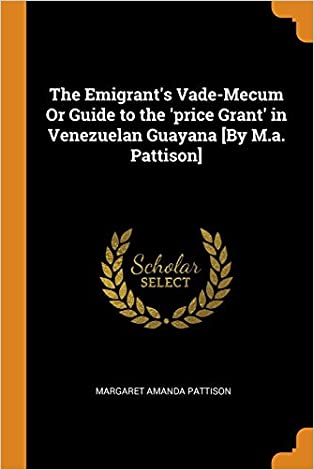 This work has been selected by scholars as being culturally important and is part of the knowledge base of civilization as we know it.This work is in the public domain in the United States of America, and possibly other nations. Within the United States, you may freely copy and distribute this work, as no entity (individual or corporate) has a copyright on the body of the work.Scholars believe, and we concur, that this work is important enough to be preserved, reproduced, and made generally available to the public. To ensure a quality reading experience, this work has been proofread and republished using a format that seamlessly blends the original graphical elements with text in an easy-to-read typeface.We appreciate your support of the preservation process, and thank you for being an important part of keeping this knowledge alive and relevant.
This work has been selected by scholars as being culturally important and is part of the knowledge base of civilization as we know it.This work is in the public domain in the United States of America, and possibly other nations. Within the United States, you may freely copy and distribute this work, as no entity (individual or corporate) has a copyright on the body of the work.Scholars believe, and we concur, that this work is important enough to be preserved, reproduced, and made generally available to the public. To ensure a quality reading experience, this work has been proofread and republished using a format that seamlessly blends the original graphical elements with text in an easy-to-read typeface.We appreciate your support of the preservation process, and thank you for being an important part of keeping this knowledge alive and relevant.